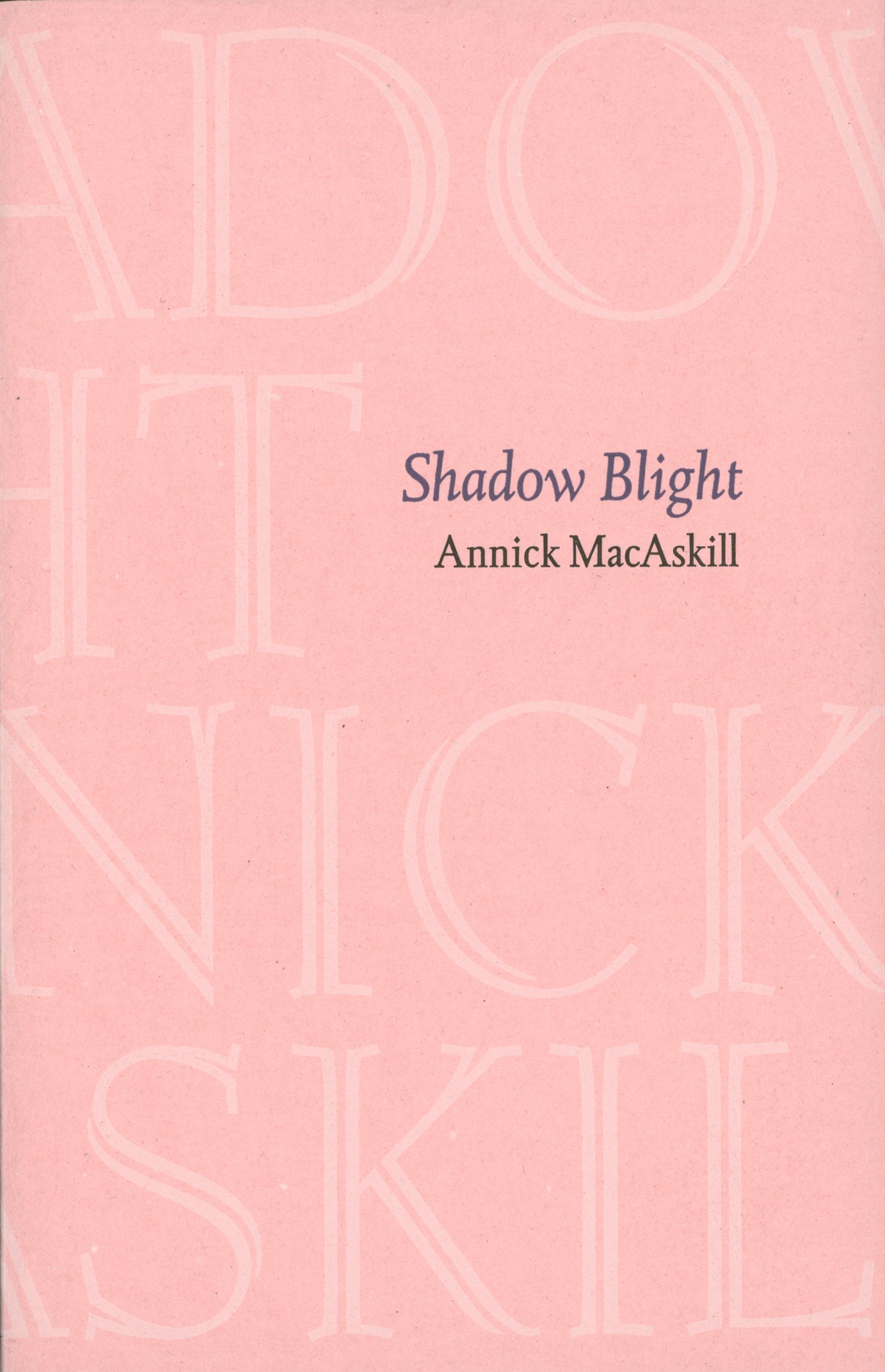Jacob Alvarado
Annick MacAskill, Shadow Blight.
Kentville: Gaspereau Press, 2022. $18.95.
From the seeds of mythological tragedy and intense grief blossoms Annick MacAskill’s Shadow Blight, a tender collection of poems dedicated to exploring one of life's greatest tragedies: the loss of a child. Blending modern conventions with ancient Greek and Roman myths, this Governor General’s Award nominee deftly blends the present with the past in a gutting exploration of the pain, loss, and transformation that comes from a miscarriage.
“Now Niobe can only watch / as fat-breasted robins dress a nest above her head, // remembering the smear of red birth / on her thighs. Punished” begins “Weeping Rock”, a poem that references the Greek myth of Niobe and sets the stage for a beginning steeped in ancient tales. As MacAskill explains in the collection’s endnotes, Niobe was the mother of several children who were killed by Latona, a woman who Niobe mocked for having less children than herself, and it’s in referencing this tale that the sting of absence is established as a primary theme.
For the first twenty pages or so, Shadow Blight continues on this myth-centric trajectory, delving further into Niobe’s story while referencing other characters such as Ceres, Goddess of the Harvest in poems like “First Snow” (“Her heart gone powder blue, / she sobs the magpie’s bewildered call // where child / where child / where child have you gone”). But Shadow Blight is a collection that’s constantly in motion, and it’s in “Heart’s Blood” that after concentrating on the Greek hero Ajax, a shift takes place towards it’s modern-day grieving:
…How ridiculous they are! Their
billowing clothes, vacant shoebox
tombs and gifts to the shadows of children
they know to be lost; painting the walls
of online forums with trite epithets.
They cease to beg the goddesses;
they know the sin is in their wanting.
In addition to this thematic shift, MacAskill also enters a more personal place, shifting her speaker into a more heightened state of emotion that allows for a more nuanced exploration of grief. From the blunt despair in “Fruitful” (“I reach and remember, aching // for what I’ll never see – a dark-haired boy) to the biting anger in “Variant” (“And when devoid of witness, / our suffering turns to rage. What is left // when what defines us slips away?”), MacAskill doesn’t shy away from exploring a wide emotional spectrum, and through this exploration, Shadow Blight wears away naturally into a place of greater rawness that culminates in the strikingly minimal “Miscarriage”:
on a Saturday in September
we waited in the ER seven hours
where the thought that we might see you
puffed up my chest
the ultrasound was hazy
as unreality
because you were already out
ahead of me
Combining gutting imagery, unwavering blatancy, and an expert use of white space, “Miscarriage” sees MacAskill completely ripping the mask away in a poem that, by being so direct and disconnected from any myth, evokes a sense of acceptance from the speaker, and perhaps even a sense of hope (“but the centre of you / was white and blue / a star”). However, this is far from a triumphant finale; no matter how detached this poem might be in its language (“why do we liken you to fruit? we say / bloody pulp“), one can’t help but be struck by it’s inherently tragic nature. Spread thin across 6 pages, “Miscarriage” slowly fades to an end in an act of gut-wrenching mimicry, with its final page of only three lines reading as a final, weakened gasp.
So what is one to make of Shadow Blight? Certainly this is a collection of great craftsmanship and focus, and at just over 60 pages, is a wonderful example of a book that can be read in a day while leaving a lasting impression. But beyond all of its fascinating literary references, it’s enveloping grasp of the grieving process, and the evolution of its suffering speaker, Shadow Blight ultimately succeeds on its ability to show its readers its pain and to teach them how to find beauty within it. In MacAskill’s own words: “o how beautiful / the poets make our catastrophes –”.
Jacob alvarado
is the editorial intern for The Ampersand Review of Writing & Publishing and a 4th-year student in the Creative Writing & Publishing program at Sheridan College. He lives and writes in Orangeville, Ontario.


